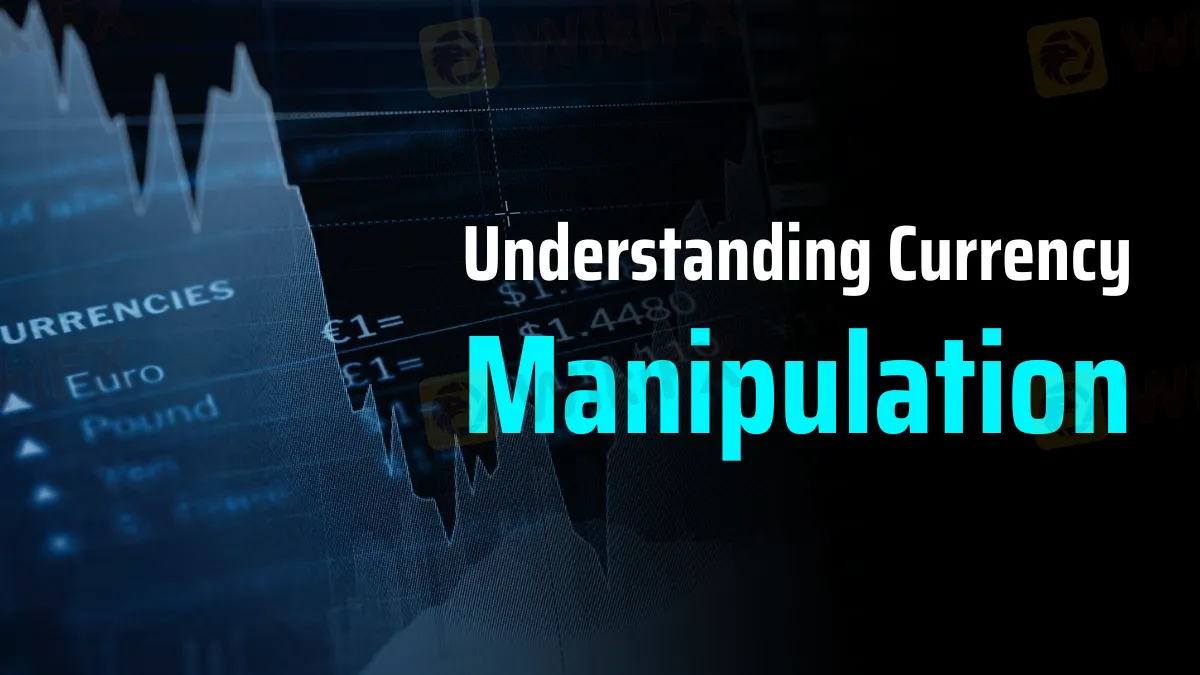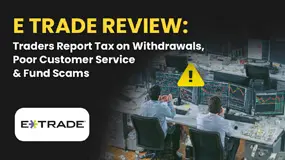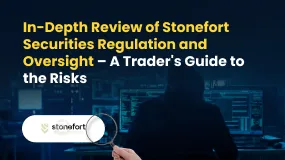简体中文
繁體中文
English
Pусский
日本語
ภาษาไทย
Tiếng Việt
Bahasa Indonesia
Español
हिन्दी
Filippiiniläinen
Français
Deutsch
Português
Türkçe
한국어
العربية
Understanding Currency Manipulation
Abstract:Learn about currency manipulation, its effects on American jobs, and solutions to protect free trade and market principles.

Currency manipulation is a complex yet crucial issue affecting global trade and the economy. It involves strategic actions by governments and central banks to influence the value of their currencies, often to gain an unfair competitive advantage in international markets. This practice can have significant repercussions for countries like the United States, impacting jobs, trade flows, and economic stability.
The Importance of Currency in Trade
Trade is fundamentally an exchange of goods and services, but it's facilitated by the exchange of money. Thus, the value of currency can be as pivotal as the quality of the traded items. When governments intervene in currency markets to subsidize their exports, they distort free trade principles. This intervention forces markets to ignore the natural supply and demand pressures, undermining fair competition.
Free trade, which supports U.S. exports and American jobs, relies on the free trade of currencies as well. When currency markets are manipulated, trade flows are distorted, negating the benefits of free trade agreements and causing economic imbalances.
Mechanisms of Currency Manipulation
Currency manipulation typically involves a country deliberately weakening its currency to make its exports cheaper and more competitive. This is done by selling its own currency and buying foreign currency, usually U.S. dollars. By increasing the supply of its own currency and the demand for foreign currencies, the manipulating country can lower the value of its currency.
For example, if Country X wants to make its exports more attractive, it will sell its currency in large amounts and purchase U.S. dollars. This action decreases the demand for Country X's currency and increases the demand for dollars, effectively lowering the exchange rate of Country X's currency.

Identifying Currency Manipulation
International bodies like the International Monetary Fund (IMF) and the World Trade Organization (WTO) have rules against currency manipulation. The IMF uses a three-part test to identify currency manipulators:
Trade Surplus: Did Country X have more exports than imports over a six-month period?
Foreign Exchange Reserves: Did Country X increase its foreign exchange reserves during that same period?
Excessive Reserves: Are Country X's foreign exchange reserves more than three months' worth of normal imports?
If a country meets these criteria, it can be identified as a currency manipulator. However, monetary policies like quantitative easing, which involves increasing the money supply to stimulate the economy, do not fall under this test.
Impact of Currency Manipulation on the U.S. Economy
Currency manipulation affects the U.S. economy in several detrimental ways:
Increased Cost of U.S. Exports: When a country manipulates its currency, U.S. exports become more expensive in that country, leading to reduced competitiveness and job losses in the U.S.
Unfair Advantage for Foreign Imports: The manipulating country's exports become cheaper in the U.S., giving them an unearned competitive edge over American-made goods. This results in decreased sales of U.S. products and loss of American jobs.
Global Competitiveness: U.S. exports become less competitive worldwide. A weaker currency in one country makes U.S. products more expensive globally, reducing overall U.S. exports and causing further job losses.
Solutions to Protect American Jobs
To combat currency manipulation and protect American jobs, strong and enforceable currency rules need to be incorporated into all future trade agreements. These rules should ensure that any country found guilty of currency manipulation loses the benefits of the trade agreement. This approach would discourage unfair currency practices and uphold the principles of free trade and market fairness.
In conclusion, currency manipulation is a significant issue that affects global trade dynamics and the U.S. economy. By understanding its mechanisms, identifying its occurrence, and implementing robust solutions, we can protect American jobs and promote fair trade practices. Enforceable rules against currency manipulation in trade agreements are essential to maintaining a balanced and fair global trading system.

Disclaimer:
The views in this article only represent the author's personal views, and do not constitute investment advice on this platform. This platform does not guarantee the accuracy, completeness and timeliness of the information in the article, and will not be liable for any loss caused by the use of or reliance on the information in the article.
Read more

E TRADE Review: Traders Report Tax on Withdrawals, Poor Customer Service & Fund Scams
Has your E Trade forex trading account been charged a withholding tax fee? Did your account get blocked because of multiple deposits? Did you have to constantly call the officials to unblock your account? Failed to open a premium savings account despite submitting multiple documents? Is fund transfer too much of a hassle at E Trade? Did you find the E Trade customer support service not helpful? In this E Trade review article, we have shared certain complaints. Take a look!

mBank Exposed: Top Reasons Why Customers are Giving Thumbs Down to This Bank
Do you find mBank services too slow or unresponsive? Do you find your account getting blocked? Failing to access your account online due to several systemic glitches? Can’t perform the transactions on the mBank app? Do you also witness inappropriate stop-level trade execution by the financial services provider? You are not alone! Frustrated by these unfortunate circumstances, many of its clients have shared negative mBank reviews online. In this article, we have shared some of the reviews. Read on!

In-Depth Uniglobe Markets Commission Fees and Spreads Analysis – What Traders Should Really Know
For experienced traders, the cost of execution is a critical factor in broker selection. Low spreads, fair commissions, and transparent pricing can be the difference between a profitable and a losing strategy over the long term. This has led many to scrutinize the offerings of brokers like Uniglobe Markets, which presents a tiered account structure promising competitive conditions. However, a professional evaluation demands more than a surface-level look at marketing claims. It requires a deep, data-driven analysis of the real trading costs, set against the backdrop of the broker's operational integrity and safety. This comprehensive Uniglobe Markets commission fees and spreads analysis will deconstruct the broker's pricing model, examining its account types, typical spreads, commission policies, and potential ancillary costs. Using data primarily sourced from the global broker inquiry platform WikiFX, we will provide a clear-eyed view of the Uniglobe Markets spreads commissions prici

In-Depth Review of Stonefort Securities Regulation and Oversight – A Trader's Guide to the Risks
For experienced traders, the process of selecting a new broker transcends a simple comparison of spreads and leverage. It is a meticulous due diligence exercise where the integrity of the broker's regulatory framework is paramount. Stonefort Securities, a relatively new entrant in the crowded brokerage space, presents a complex and often contradictory profile. On one hand, it boasts a modern MT5 platform and a stream of positive user testimonials. On the other hand, it is shadowed by severe regulatory warnings that question the very foundation of its operations. This in-depth review focuses on the core issue for any long-term trader: Stonefort Securities regulation and oversight. We will dissect the broker's corporate structure, scrutinize its licensing claims, and analyze what the data implies for trader protection and fund security. For traders evaluating whether Stonefort Securities is a trustworthy partner, understanding these details is not just important—it is essential.
WikiFX Broker
Latest News
WikiFX's New Evaluation of ATM Capital LTD: Does its License Protect the Arab Investor?
How a Fake Moomoo Ad Led to the “New Dream Voyage 5” Scam
Is Axi Legit? A Data-Driven Analysis of Its Regulatory Standing and Trader Feedback
Trive Investigation: High Score, Hidden Risk - The Profit Paradox
In-Depth Uniglobe Markets Commission Fees and Spreads Analysis – What Traders Should Really Know
FXPesa Review: Are Traders Facing High Slippage, Fund Losses & Withdrawal Denials?
CMC Markets Australia Revenue Surges 34%, But High-Net-Worth Clients Face Tax Phishing Threat
Bessent believes there won't be a recession in 2026 but says some sectors are challenged
Young Singaporean Trader Grew USD 52 into a USD 107,700 Portfolio
Is GGCC Legit? A Data-Driven Analysis for Experienced Traders
Currency Calculator



